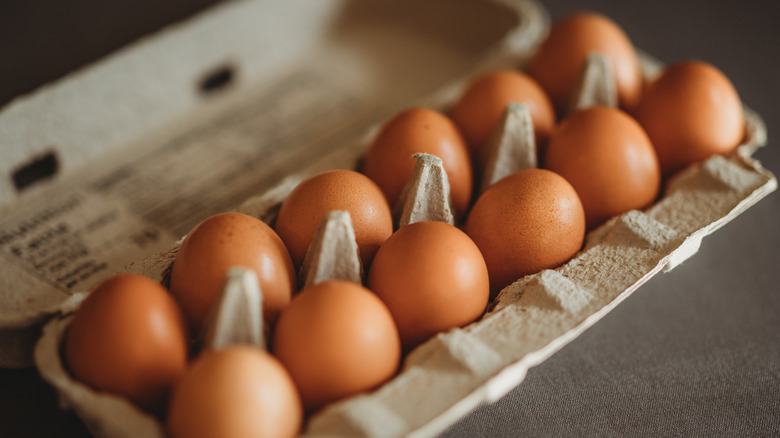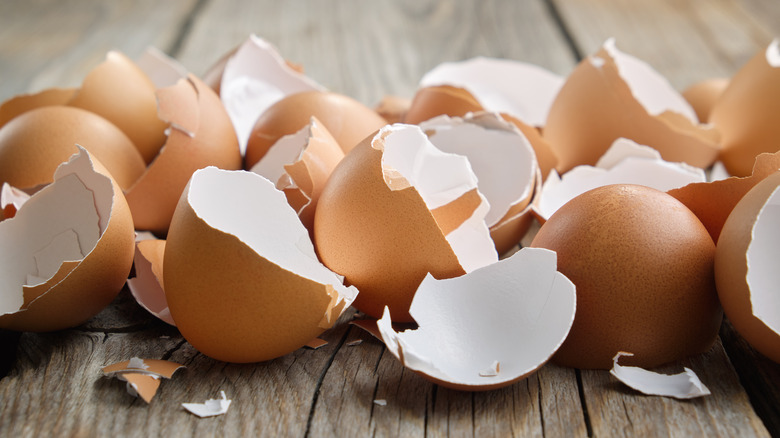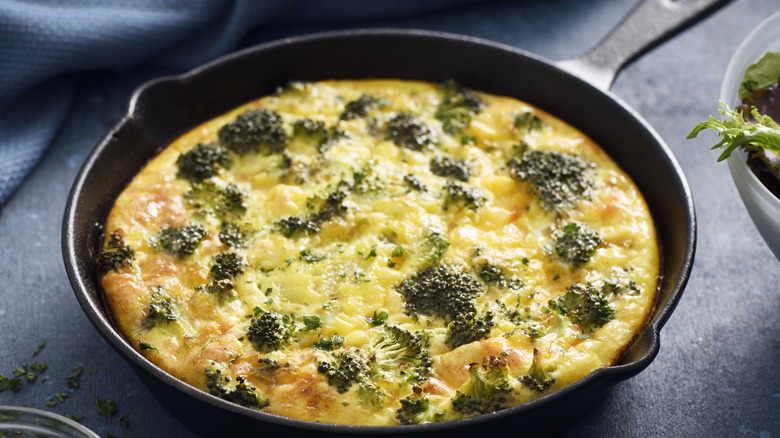The Myth You Still Believe About Egg Carton Dates
There's a big debate over the tiny date printed on egg cartons and other foods that are staples in countless home kitchens. For some, an expiration date is a clear and unyielding indicator and, once surpassed, food should be tossed. For others, expiration dates are more like suggestions that can be loosely interpreted based on one's own judgment. When it comes to eggs (and most food products), the expiration date is not a hard and fast deadline, but rather a guideline intended to help you enjoy them at their best.
Eggs taste best right after being laid. The further in time and space that your egg has traveled from the chicken that laid it, the more the flavor degrades. For this reason, it's more a matter of food quality than it is about food safety. If stored properly, your eggs should remain safe to eat for as much as five weeks beyond their printed expiration date.
Storing your eggs to keep them fresh
Unless you buy your eggs at a farmers market, you should store them toward the back of your refrigerator to keep them cold. Once eggs have been refrigerated, make sure they stay adequately chilled. When transporting a carton home from the grocery store, keep them cool (especially on a hot day) and get them back into a refrigerated space within two hours to prevent unhealthy bacteria from forming. Only allow your eggs to be brought to room temperature if you are going to use them to bake — and don't let them sit too long.
It's a myth that you need to throw out your eggs as soon as they hit the expiration date printed on the carton, but if they begin to smell rotten or if you notice a crack in the shell, do not eat them. If you have a garden, you can avoid wasting spoiled eggs by breaking eggs to mix into the soil as a natural fertilizer.
What to do with an abundance of eggs
If you do find yourself with a carton of eggs that have gone beyond their sell-by date and seem best eaten sooner, rather than later, there are plenty of fast and easy options to make good use of an abundance of eggs! It's worth noting that, while widely considered a breakfast food, there are many ways to cook eggs for dinner. One of the simplest solutions is to make a frittata, which can be filled with whatever vegetables, meats, cheeses, and herbs you might have on hand.
If you're feeling a little more ambitious, you can opt for something sweet rather than savory. When it comes to desserts, it happens frequently that a recipe calls for just egg whites or yolks, so you may want to pair two different recipes together to avoid wasting any part of the egg. For example, if you're baking an angel food cake or pavlova (which both require lots of egg whites), consider making a custard to take full advantage of the leftover yolks.



